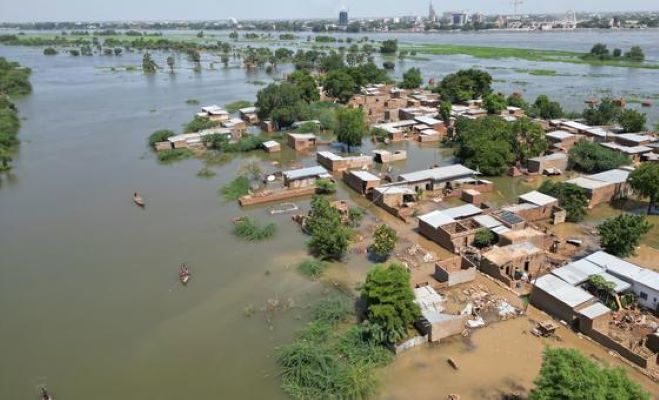Nearly 2.5 million acres of farmland in West and Central Africa are under water following unprecedented floods- posing a long-term threat to the region’s food security with over 3.5 million in need of urgent food aid.
The floods in a decade swept across Nigeria, Chad, Niger, Burkina Faso, Mali and Cameroon.
In Nigeria, the floods in Nigeria have destroyed more than 570 000 hectares of farmland, according to Sadiya Umar Farouq, the minister of humanitarian affairs and disaster management. Crops such as rice, maize, and small grains are being lost in the northeastern and middle belt states, where the majority of Nigeria’s food is grown.
Sib Ollo from the World Food Programme (WFP) said West and Central African regions were already facing a dire food security situation prior to the floods, and the prolonged drought last year, conflict in the Sahel region had displaced nearly 8 million people, the majority of whom are farmers.
“This is a once-in-a-lifetime opportunity. This is a perfect storm of factors all working together to lead us to a catastrophe, a major crisis,” Ollo said.
Edwin Chigozie Uche, the president of Nigeria’s Maize Growers and Processors Association, said preliminary reports indicate that up to 30% of the maize crop in the two regions could have been lost due to flooding, raising the prospect of food shortages.
“We’ve begun collecting soil samples in flood-affected areas to assess nutrient levels. Farmers will need time to get back to farming,” Uche said.
Goni Alhaji Adam, the chairman of the northeastern Borno state Associations of Sorghum Producers, Processors, and Marketing in Nigeria added that the flooding was the worst he had seen in two decades. “Because of the devastating floods, we are very concerned about farming next year.
“Because the topmost layer of soil, which contains high nutrients, has been washed away, leaving the soil dead, the possibility of not being able to farm is very high,” he said.
Adam said most of the affected are small-scale farmers who cannot afford soil fertility tests and other farm management methods and will be unable to farm next year without assistance, but even if they do receive assistance, he fears that it will be insufficient.
“The climate crisis is happening now – destroying livelihoods, disrupting food security, aggravating conflicts over scarce resources and driving displacement,” the United Refugee Agency (UNHCR) spokesperson Olga Sarrado said.
“Countries and communities on the frontlines of the climate crisis need urgent support and financing to build defences, to adapt, and to minimise the most harmful consequences.”









